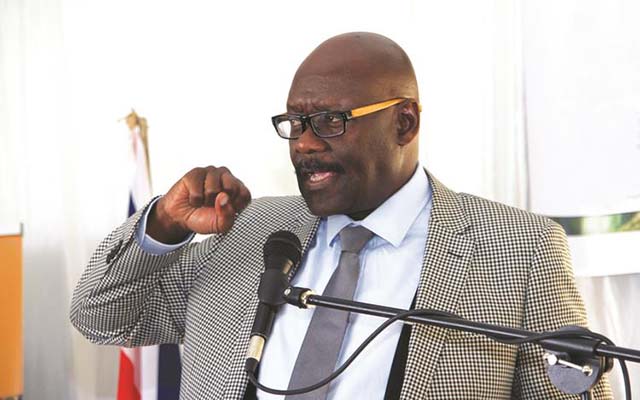Drug supply improves

Harare Bureau
The supply of essential drugs to referral health institutions has improved following procurements done with a ring fenced fund collected from airtime tax, Health and Child Care Minister Dr David Parirenyatwa has said.
Speaking after touring Natpharm, the country’s pharmaceutical distribution company, in Harare recently, Dr Parirenyatwa said Government had so far received $18 million from airtime tax, money which was used to procure the medicines.
“As you can see now, we have got the Health Fund that we get from your cell phones, each time you make a call, we are getting five cents out of every dollar and that’s the money that has accumulated to the tune of $18 million since it started,” he said.
“That is the money that we are using outside the drugs that are brought by donors and we are pleased that Natpharm, which is our warehouse for all drugs is fully stocked and we hope this continues and spills over to where the drugs should be used.
“We do not want these drugs to stay here, this is just a warehouse. We want the drugs to go to where they should be used, that’s to the hospitals and to the clinics.”
Dr Parirenyatwa said Government was looking forward to the improvement of the drug situation in all its institutions, as distribution progressed.
“We are hoping that in the next few weeks, the drug stock levels in provincial hospitals, district hospitals and general hospitals and all health institutions will be very high because this process has just started,” he said.
Dr Parirenyatwa said ARV stock outs were now a thing of the past and the new ARV, E400, was now available locally.
“We are happy that we have got those stocks here,” he said. “The people are on the ground and we want to make sure the drugs are available in the next few weeks.
“We want the fund to be completely ring fenced and the allocation from the national budget should go where it is supposed to go.”
Meanwhile, the Zimbabwe Lawyers for Human Rights has implored Government to take advantage of the Trade-Related Aspects of Intellectual Property Rights (TRIPS) Agreement to increase access to medicines.
ZLHR head of Aids and law unit Mr Tinashe Mundawarara said property rights to medicines limited accessibility due to high prices.
He said the TRIPS agreement had flexibilities aimed at making medicines affordable and accessible to developing countries such as Zimbabwe.
Zimbabwe is still in the process of incorporating the TRIPS flexibilities into its legislation.










Comments